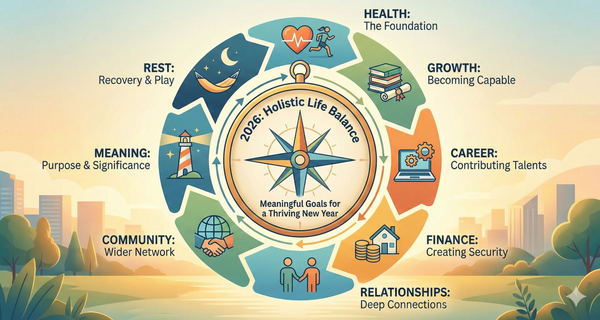Supplements 101: What You Really Need

Supplements 101: What You Really Need
Welcome to the world of health supplements, a landscape filled with promising bottles and complex claims. If you feel overwhelmed by the sheer volume of vitamins, minerals, and herbal extracts available, you're not alone. This guide is designed to cut through the noise, providing a clear and simple roadmap to understanding what supplements you *really* need for optimal physical health. Our goal is to empower you to make informed decisions, focusing on wellness essentials rather than fleeting trends, ensuring your journey into supplementation is both effective and safe.
The Foundation of Health: Diet First, Supplements Second
Before we dive into specific vitamins and minerals, it's crucial to establish the golden rule of nutrition: supplements are not a substitute for a healthy diet. Real, whole foods provide a complex array of nutrients, fiber, and phytochemicals that work synergistically to support your body in a way no pill can replicate. Think of your diet as the foundation of your house; supplements are the reinforcements, not the structure itself.
Why a food-first approach is crucial
A balanced diet rich in fruits, vegetables, lean proteins, and whole grains provides the primary fuel and building blocks for your body. Food offers a matrix of nutrients that are better absorbed and utilized than their isolated supplement counterparts. Furthermore, relying on supplements can sometimes create a false sense of security, leading to neglect of the dietary habits that are most impactful for long-term health and wellness.
Identifying nutritional gaps in your diet
The primary role of supplements is to fill specific nutritional gaps. These gaps can arise from various factors, including dietary restrictions (like veganism), life stages (such as pregnancy), or limited sun exposure (affecting Vitamin D levels). A great first step is to honestly assess your eating habits. Are you consistently eating a variety of colorful vegetables? Do you consume fatty fish regularly? The answers to these questions can help you identify potential areas where a supplement might be beneficial.
Core Supplements: The Wellness Essentials
While a personalized approach is always best, there are a few foundational supplements that a large portion of the population can benefit from due to common dietary shortfalls and modern lifestyle factors. These are the true wellness essentials.
The Multivitamin: Your Nutritional Insurance Policy
Think of a daily multivitamin as a nutritional safety net. It's designed to fill in the minor, day-to-day gaps in your diet. A good multivitamin provides a broad spectrum of essential vitamins and minerals at recommended daily levels. It’s not a magic bullet, but it is an excellent, cost-effective way to ensure you're covering your basic micronutrient needs, supporting everything from energy production to immune function.
Vitamin D: The Sunshine Vitamin
Vitamin D is unique because our bodies can produce it through sun exposure. However, due to indoor lifestyles, geographic location, and consistent sunscreen use, many people are deficient. Vitamin D is critical for calcium absorption, bone health, immune system regulation, and mood. For many, especially during winter months, a Vitamin D supplement is not just beneficial, it's essential.
Omega-3 Fatty Acids: Brain and Heart Health
Omega-3s, particularly EPA and DHA found in fatty fish, are superstars of the supplement world. They are renowned for their powerful anti-inflammatory properties and play a vital role in cardiovascular health, brain function, and eye health. If you don't eat at least two servings of fatty fish like salmon or mackerel per week, a high-quality fish oil or algae-based omega-3 supplement is a wise investment.
Probiotics: Supporting Your Gut Microbiome
The health of your gut is intrinsically linked to your overall health, influencing your immune system, digestion, and even your mood. Probiotics are live beneficial bacteria that help maintain a healthy balance in your gut microbiome. While they are present in fermented foods like yogurt and kimchi, a probiotic supplement can provide a more potent and targeted dose to support digestive health and regularity.
Targeted Supplements: For Specific Needs and Goals
Beyond the core essentials, some supplements are valuable for individuals with specific lifestyles, dietary patterns, or health objectives.
For the Active Individual: Protein and Creatine
If you live an active lifestyle, your nutritional needs are higher. Protein powder is a convenient way to ensure you're getting enough protein to repair and build muscle after exercise. Creatine is one of the most studied supplements on the market, proven to enhance strength, power output, and muscle growth, making it a staple for many athletes and gym-goers.
For Plant-Based Diets: Vitamin B12 and Iron
Those following a vegan or vegetarian diet need to be particularly mindful of certain nutrients. Vitamin B12, crucial for nerve function and red blood cell formation, is found almost exclusively in animal products, making supplementation essential. Iron, while present in plants, is less bioavailable; therefore, an iron supplement may be necessary to prevent deficiency, especially for women.
For Stress and Sleep: Magnesium and Ashwagandha
In our fast-paced world, managing stress and getting quality sleep are paramount. Magnesium is a mineral that plays a role in over 300 enzyme systems and is known for its ability to promote relaxation and improve sleep quality. Ashwagandha is an adaptogenic herb used for centuries in Ayurvedic medicine to help the body cope with stress and anxiety.
Navigating the Supplement Aisle: A Buyer's Guide
Choosing a supplement can be daunting. The industry is vast and not all products are created equal. Here’s how to be a savvy consumer.
Understanding Labels and Certifications
Look for third-party certifications on the label. Seals from organizations like USP, NSF, or ConsumerLab indicate that the product has been tested for purity, potency, and contaminants. This means what's on the label is actually in the bottle. Pay attention to dosage, ingredient forms (e.g., magnesium citrate vs. oxide), and the "other ingredients" list to avoid unnecessary fillers and allergens.
Red Flags: How to Spot a Low-Quality Supplement
Be wary of exaggerated claims, promises of a "miracle cure," or products that rely heavily on celebrity endorsements over scientific evidence. Proprietary blends can also be a red flag, as they hide the exact amounts of each active ingredient. High-quality brands are transparent about their sourcing, manufacturing processes, and ingredient dosages.
Consulting a Professional: The Smartest Step
The most important step in developing a supplement strategy is to consult with a healthcare professional, such as a doctor or registered dietitian. They can analyze your diet, order blood tests to identify specific deficiencies, and recommend the right supplements and dosages for your unique needs, ensuring both safety and effectiveness.
Conclusion: A Personalized Path to Wellness
The journey to better health through supplementation is not about collecting a cabinet full of bottles; it's about smart, targeted choices. Start with a foundation of a nutrient-dense diet, then consider the core wellness essentials like a multivitamin, Vitamin D, and Omega-3s. From there, explore more targeted supplements only if they align with your specific health goals and lifestyle. By prioritizing quality, seeking professional guidance, and listening to your body, you can create a personalized supplement plan that truly supports your long-term physical health and vitality.




